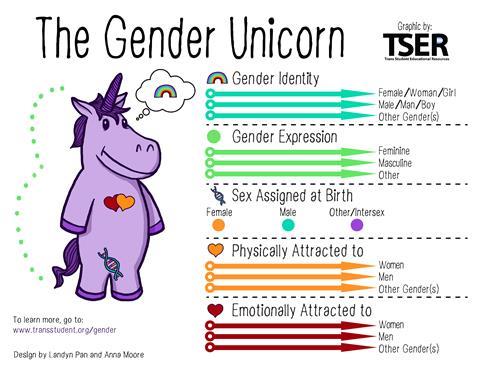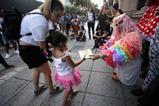The new draft government guidance on relationships, sex and health education (RHSE) in schools has now been published. Julie Maxwell explains how it came about and what it contains - as well as how Christians can continue to hold schools to account

September 2020 saw the introduction of compulsory relationships, sex and health education (RSHE) in all UK secondary schools. The year before, the government released RSE guidance to support it, promising a review after three years. Then Covid happened. Implementation of the guidance was somewhat hampered due to restrictions imposed by the pandemic and, in particular, parental engagement was difficult.
At the beginning of last year, two important reports were published. Miriam Cates MP commissioned The New Social Covenant Unit (NSCU) to explore “concerns about the implementation of the RSE curriculum in schools, and to set out the mounting evidence of widespread indoctrination and age-inappropriate teaching”.
The Policy Exchange’s Asleep at the Wheel examined issues around gender and safeguarding in schools and concluded that “schools are increasingly becoming influenced by gender ideology”.
One thing still noticeably absent is any clear, positive teaching on abstinence
These reports revealed the shocking extent of inappropriate and explicit sex education in both primary and secondary schools, and the widespread teaching of gender ideology as fact. As a result, the prime minister and education secretary announced an urgent review, to be completed by the end of 2023. Unsurprisingly, it took longer than planned, but the resulting draft guidance has now finally been published.
In the meantime, two other significant documents were produced. The first was draft guidance for schools on gender-questioning children. The second was the Cass review into the NHS treatment of gender-questioning children. This revealed significant failings in the way these children and young people have been managed, both in the NHS and schools.
There is much to be thankful for in the new draft RSHE guidance. In the accompanying press release, the Department for Education highlights three main changes:
1. Contested theory of gender identity will not be taught in schools
2. Schools should ensure that RSHE materials are available to parents for review
3. Age rating introduced to protect children from inappropriate materials
Gender Identity

Teaching about gender identity as fact, and using materials such as the gender unicorn poster, has become widespread. Teachers are often reluctant to teach biological facts about boys and girls/men and women and, as a result, children are being confused and misled. The new draft guidance is clear that schools should only teach facts about biological sex and not use materials that might suggest gender is determined by interests or clothing choices. The guidance states that “gender identity is a highly contested and complex subject”.
Parental rights
Although the 2019 guidance was clear on the role of parents as primary educators of their children and the need to consult with them on RSHE, this has been significantly strengthened in the new draft. In Gillian Keegan’s forward, parents are mentioned first, with RSHE in schools as something that should support them. A whole section is dedicated to addressing openness with parents - including their right to view all material used, and to know in advance when these subjects will be taught.
Parents are only able to withdraw their child from sex education - although it isn’t always clear what constitutes sex education. The new guidance emphasises the need for clarity in this, and to ensure that anything taught in relationships education or the science curriculum do not go beyond what is stipulated in the sex education guidance.
Age ratings
There are a number of topics in the curriculum that now have minimum ages placed on them. This is to ensure that “children are not introduced too early to concepts they may not have the maturity to grasp”. For example, puberty should not be taught before Year 4 and sex education (if taught in primary school) not before Year 5.
Schools should only teach facts about biological sex and not suggest gender is determined by interests or clothing choices
Teaching around pornography should not be taught before Year 7 and details of sexual acts and abuse not before Year 9. These are, of course, the lower limits and do not mean these subjects must be taught at these ages. There are also some exceptions allowed (with clear parameters) if, for example, there has been an incident of abuse in the school.
A Christian view
The new draft guidance includes some significant improvements to the teaching of RHSE in schools.
There is also another change which I think is important. The guidance includes a sentence which reads: “Schools can most commonly refer to families with a mother and father but should be sensitive to pupils’ circumstances.” While being aware of different family circumstances, this is a clear nod to the importance of acknowledging the traditional, nuclear family, that the majority of people are heterosexual and will get married.
One thing still noticeably absent is any clear, positive teaching on abstinence, the possibility of choosing to delay sex until marriage and the benefits this might bring.
So what can we do as Christians?
1) If you are a parent, ask to see the material your child’s school is using
2) Challenge material if it is not following the guidance
3) Respond to the consultation before it closes on 11 July
4) Pray for parents, teachers and the government - and that children will be protected from gender ideology in our schools




































1 Reader's comment